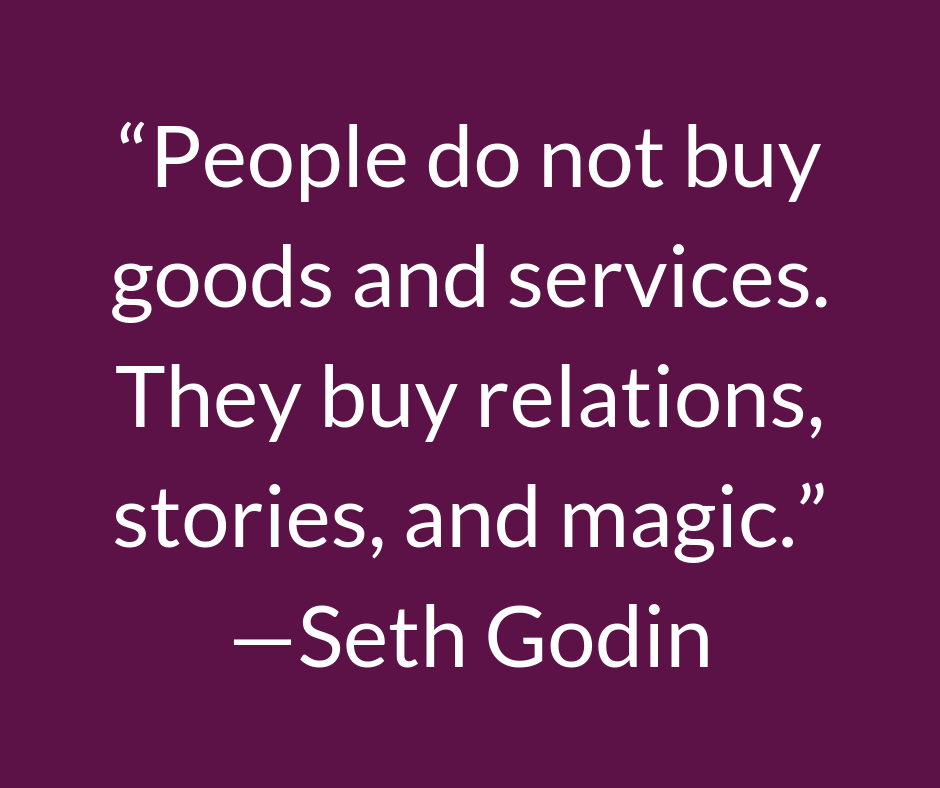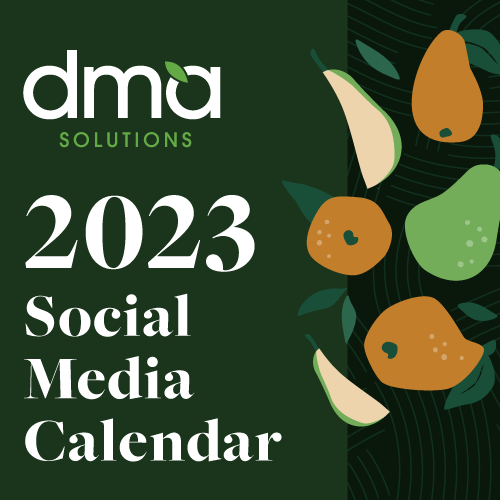It always surprises people when we say this, but as we’ve stated before: fresh produce will sell without marketing. It will. There is an inherent demand for fresh food and it is going to sell with or without dedicated year-round marketing. But here’s the kicker: without marketing, companies are left operating as commodities or, at most, as trade names. The alternative—fresh produce companies that embrace a brand-worthy approach to marketing—believe in the power that brands possess to provide something of value to their buyers, to consumers, and to the industry as a whole.
In more recent times, we have seen produce companies commit to marketing in order to establish their name with buyers and in the industry—that’s evident by just the amount of time, money, and effort put into trade marketing nowadays! However, it is our belief that brands, more so than commodities and trade names, will be more of a dominant force in fresh produce. Here’s why: consumers will continue to expect a transparent connection with the source of the products they buy, especially their food!
While the door is wide open for the proliferation of branded produce, companies will continue to face barriers including insufficient know-how, generic private labeling, and the required investment to create results. This is a very deep topic to unpack in a single post, but we believe we are at a crossroads as it relates to marketing in this industry, and at that intersection lies a decision. More specifically, a decision and commitment that determine whether you are going to market as a commodity, trade name, or brand.
Marketing’s Role in Commodities, Trade Names, and Brands
Commodities
If you operate as a commodity, then by definition, your audiences see nothing unique about you or your products. You probably have a legal name, and maybe even a website, but you are beholden to price and availability. While your company may do just fine from a financial standpoint, you have little to no relationship with consumers—and you don’t have the opportunity to create lasting demand for your products beyond price and availability. The focus is entirely on a transactional relationship: today’s sale.
Trade Names
If you have invested in marketing enough to have earned a name with customers, you will have dedicated time to trade marketing—including tradeshows, some trade ads, ensuring your company name gets on the retail shelf—and you may even have an up-to-date website and active social media platforms. Buyers know your name and will take your calls, attend your parties, and probably even hang up the annual wall calendars. Those are all great things, and at the same time, there is a key audience we’re forgetting to speak to when we focus primarily on the trade: consumers. Without a connection to consumers, we limit our potential for education, innovation, and timely communication in moments of crisis, as well as the ultimate role of a brand: the ability to create a connection that inspires a purchase.
Brands
A brand, on the other hand, is “all-in” when it comes marketing because they understand the relationship between sales and marketing. From trade presence to public relations, social media, and consumer promotions, brands are consistently engaged with retailers and consumers to influence conversations about their products, the industry, and even food as a whole. Brands can leverage their earned influence to drive demand and secure returns for all stakeholders.
So what’s the real defining factor between the three?
 Ultimately, brands are focused on building equity beyond day-to-day sales. They have a story, and that story doesn’t appear solely on their own website and packaging. You see, brands know that a story only really exists as it lives in the minds of their audience—and the story serves to create relevance and trust. When trying to decide where your company lies on the continuum, a simple place to start is here: What do buyers and consumers say about your company and product? What do they think about your story? And—more importantly—do they even think about your story?
Ultimately, brands are focused on building equity beyond day-to-day sales. They have a story, and that story doesn’t appear solely on their own website and packaging. You see, brands know that a story only really exists as it lives in the minds of their audience—and the story serves to create relevance and trust. When trying to decide where your company lies on the continuum, a simple place to start is here: What do buyers and consumers say about your company and product? What do they think about your story? And—more importantly—do they even think about your story?
We’d love to hear your perspective as we continue unpacking the opportunities and barriers we face as we seek to understand how marketing can play a more vital role in driving demand and sales of fresh produce. Leave us your thoughts in a comment below or reach out to us on Twitter at @TheCoreBlog!
Dan’l Mackey Almy’s passion for fresh produce has paved the way for her dynamic career as an industry trailblazer. After selling produce for a decade, she recognized that in order for the industry to progress, it would be necessary for fresh produce companies to focus on how to market products more effectively. Since 2004, she has worked alongside the DMA Solutions team and progressive clients to transform marketing and elevate brands in a once commodity-centric industry. The DMA team is guided by the belief that when anyone in this sector flourishes, there is a net-positive result on people, communities, and society.
{{cta(‘6719b5df-74ed-4dd8-be16-b1b41b9e6ffc’)}}












